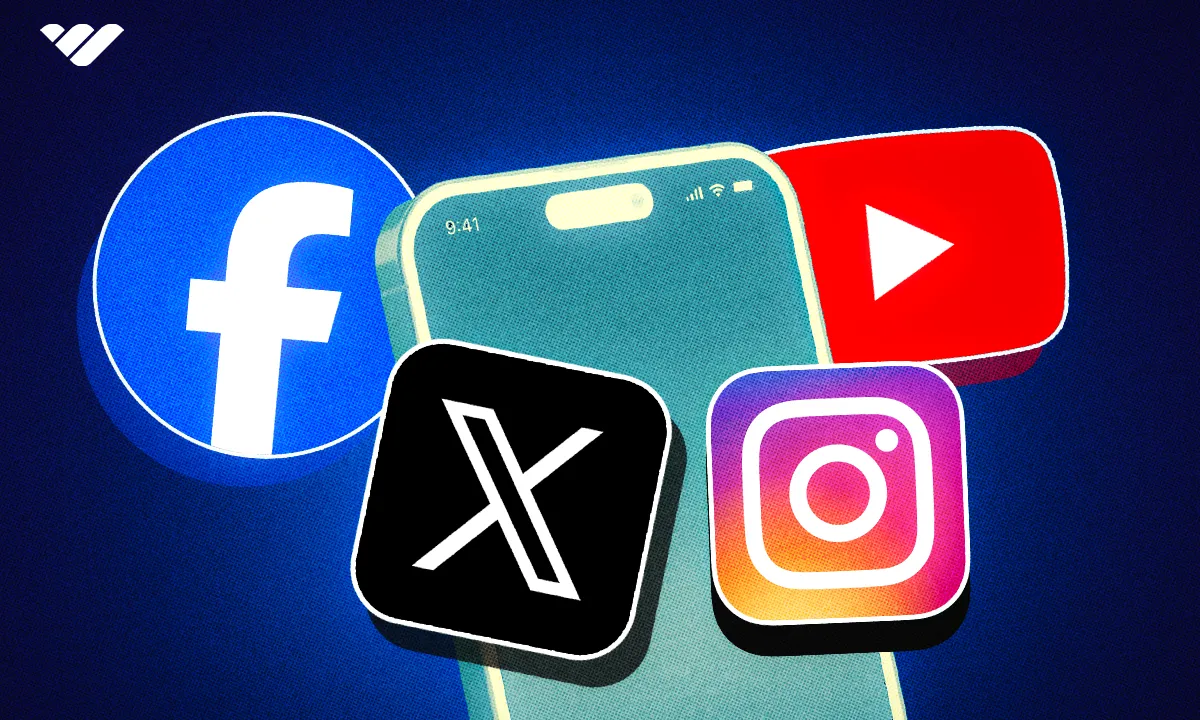Find the best social media platform to sell your products. Read about the pros, cons, and specifics of each platform.
Key takeaways
- Each social platform suits different product types—visual products thrive on Instagram, B2B services fit LinkedIn, and purchase-ready shoppers browse Pinterest.
- Social selling requires direct customer engagement through content, comments, and community building to establish trust and loyalty.
- Viral potential on platforms like TikTok can dramatically expand reach without significant advertising investment.
In today's world, social media platforms aren't just tools for connecting with loved ones, sharing photos, and giving life updates anymore. With an estimated 4.9 billion people using social media across the world in 2023, they’ve become a powerful sales channel for businesses of all types and sizes to showcase their products, engage with customers, and drive sales through entertainment.
But not all social media platforms are created equal when it comes to selling products online. The right platform for your business depends on your target audience, product type, and what you want to do to market your brand. It’s important to consider these factors when starting social accounts for your business.
So if you're looking to start selling on social media and want to know which platform is best for your business, you've come to the right place. Keep reading to discover the best social media platforms for selling products in 2026.
How Does Selling on Social Media Work?
Selling on social media has become essential for businesses due to the organic reach and ability to scale your traffic through paid ads. This avenue has given rise to sales strategies that take advantage of high engagement, which is the foundation for selling on social media. It’s what we call social selling.
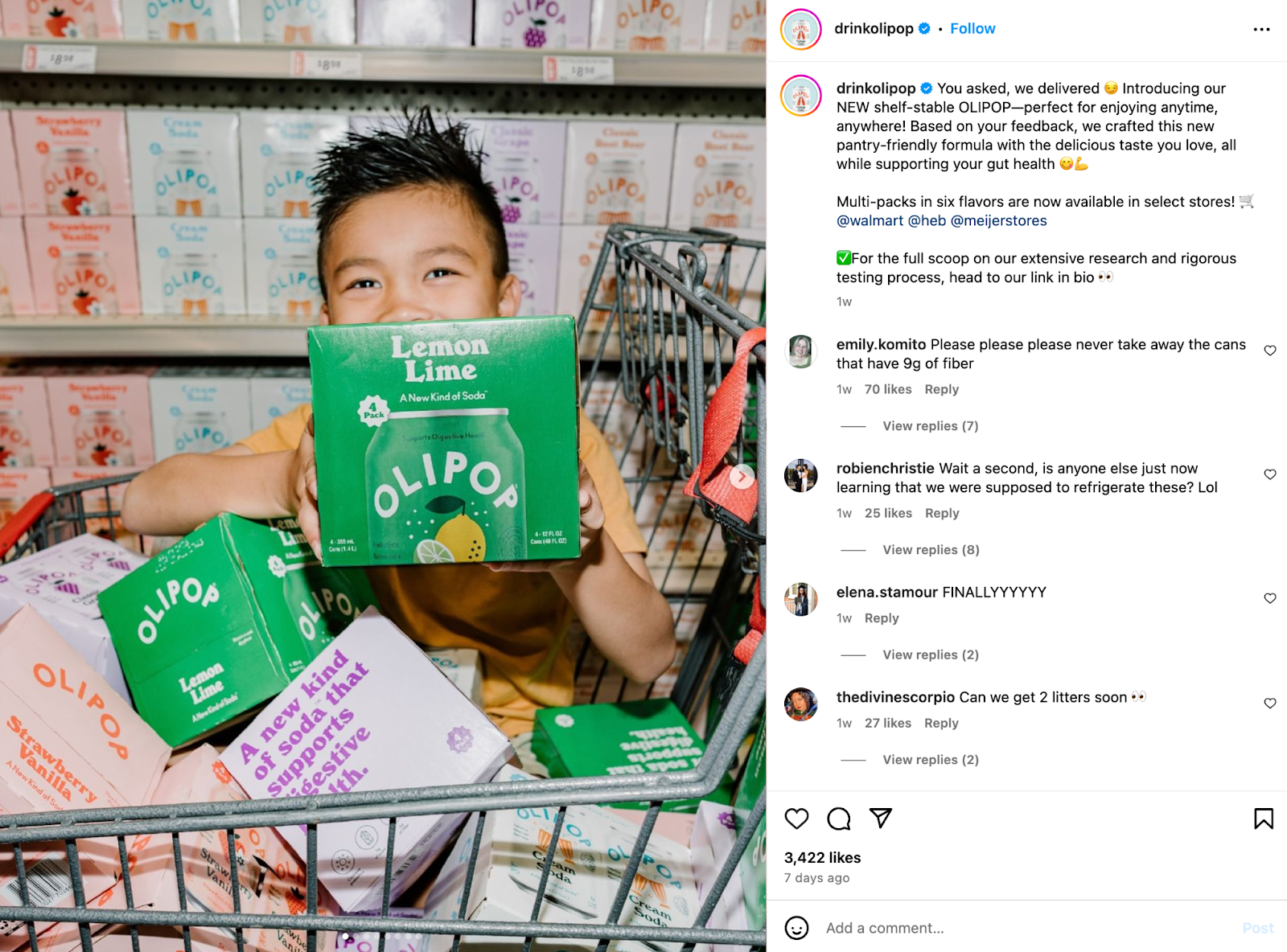
Social selling promotes direct interactions between businesses and customers. It involves publishing posts, replying to comments, and building trust with your potential buyers.
Social media selling works by presenting your product directly to the public through interaction and fun content. To sell on social media, you need to have a strong sense of customer service and fan loyalty. You need to be prepared to answer questions, fulfill orders directly, and interact with your customers.
Why Should I Sell on Social Media?
Whether you are a small business owner or have a large corporation, the opportunities presented by selling on social media are too significant to ignore, from reaching a vast audience to building brand loyalty and awareness.
Here are a few more reasons why you should sell on social media.
Massive Audience Reach
The average person globally spends about 145 minutes on social media every day, with 84% of people aged 18 to 29 using at least one social media site. Also, in the U.S., people have an average of 7.1 social media accounts, with Facebook being the favorite.
If these numbers confirm anything, it's that social media platforms like Instagram, Facebook, and TikTok can provide businesses with an unprecedented opportunity to reach many potential customers, no matter if you’re targeting a global market or a specific local demographic.
Direct Engagement With Customers
One of the most significant advantages of selling on social media is the ability to interact directly with your customers. Whether it’s responding to comments, answering questions, or engaging in conversations, social media allows you to build relationships with your fans.
By constantly posting new content that resonates with your audience, you can increase your brand’s visibility. Over time, this familiarity can lead to trust, loyalty, and a stronger connection between customers and your brand, which equals more $$$.
Lower Customer Acquisition Costs
Compared to traditional advertising methods like TV or radio, social media marketing is incredibly cost-effective because the only expense is creating the content. Even if you opt for paid advertising, you can get a higher return on investment by reaching the right audience with the right message rather than something like out-of-home advertising, which is often too broad.
There’s also the possibility of going viral. If your posts resonate with your audience, it has the potential to be shared widely and turn viral, exponentially increasing your business’s reach with no additional cost for paid ads. Viral marketing can create a buzz around your product, increasing sales, long-term brand interest, and recognition.
The Best Social Media Platforms to Sell Products On in 2026
Choosing a social media platform to open your online store may seem like a simple decision; after all, you just have to choose the most popular one, right? But it’s important to remember that social media has various features and depending on the type of business you have, these functions may end up being overlooked.
Here are the best social media platforms to sell products in 2026.
1. Facebook
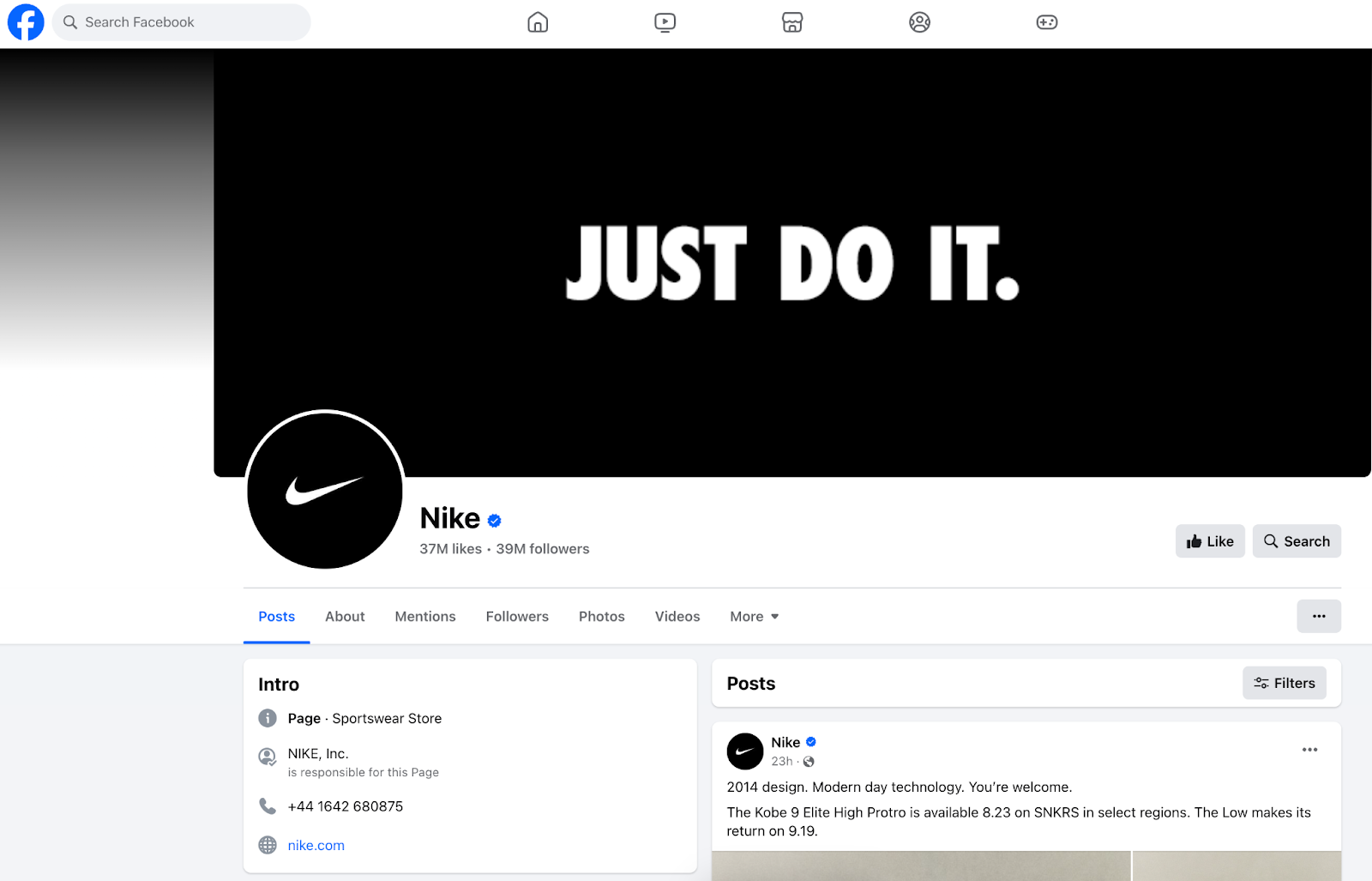
Still the most popular social media site in the world, with over 2.8 billion active users, Facebook is an all-in-one platform to sell online. It even has integrated support aimed at businesses of all sizes—Meta for Business. With advertising tools and robust ecommerce features, it's a versatile platform for selling.
Facebook also has Facebook Shops, a tool that allows businesses to create an online store directly on the platform. This feature is also integrated with Instagram, enabling an even greater reach for your business across two of the largest social media platforms on the internet, with a seamless shopping experience for your customers.
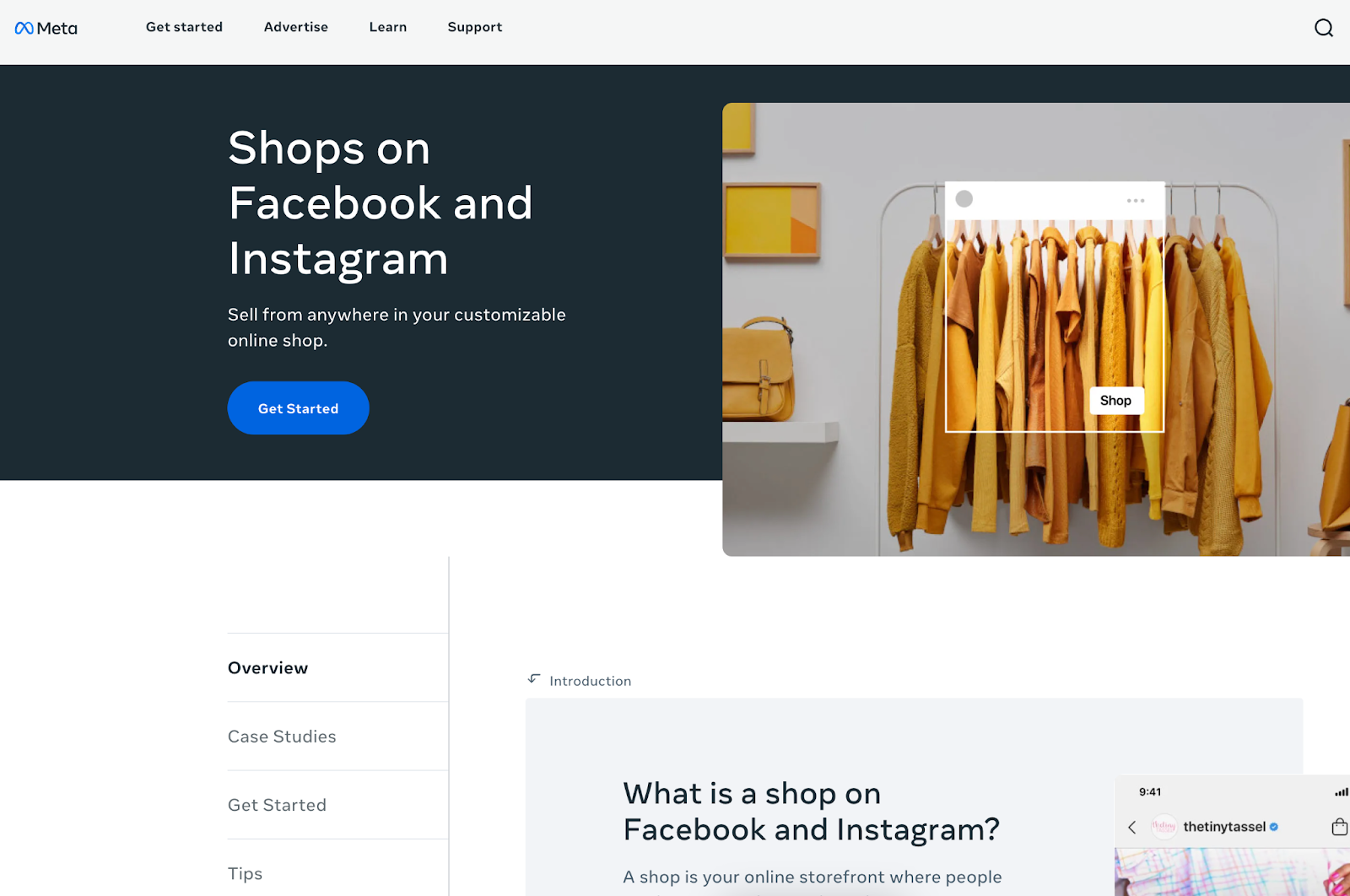
And its community-building features, Facebook Groups and Pages, allow brands to build communities around their products, fostering loyalty and even encouraging user-generated content creation around your products.
If you’re going to sell on Facebook, here are some tips:
- Use Facebook Ads: You can use Facebook’s various ad formats, such as carousel ads, video ads, and dynamic ads, to showcase your products in targeted ad campaigns to reach potential customers.
- Engage with your community: Create a community around your products and engage with members by sharing valuable content such as special sales, for example.
- Optimize your Facebook Shop: Make sure your Facebook Shop is user-friendly, with clear product descriptions, high-quality images, and easy navigation.
2. Instagram

With over two billion active users, Instagram is one of the most popular social media platforms for ecommerce. As a highly visual app, mostly focused on sharing photos and Reels, it’s ideal for brands with visually appealing products like fashion, technology, digital artwork, and food.
Originally an image-sharing app, Instagram evolved into a hub for influencer marketing and product discovery. Today, it has transformed into a fully integrated shopping platform, allowing users to make purchases without ever leaving the app because, much like Facebook, Instagram has a dedicated shopping feature.
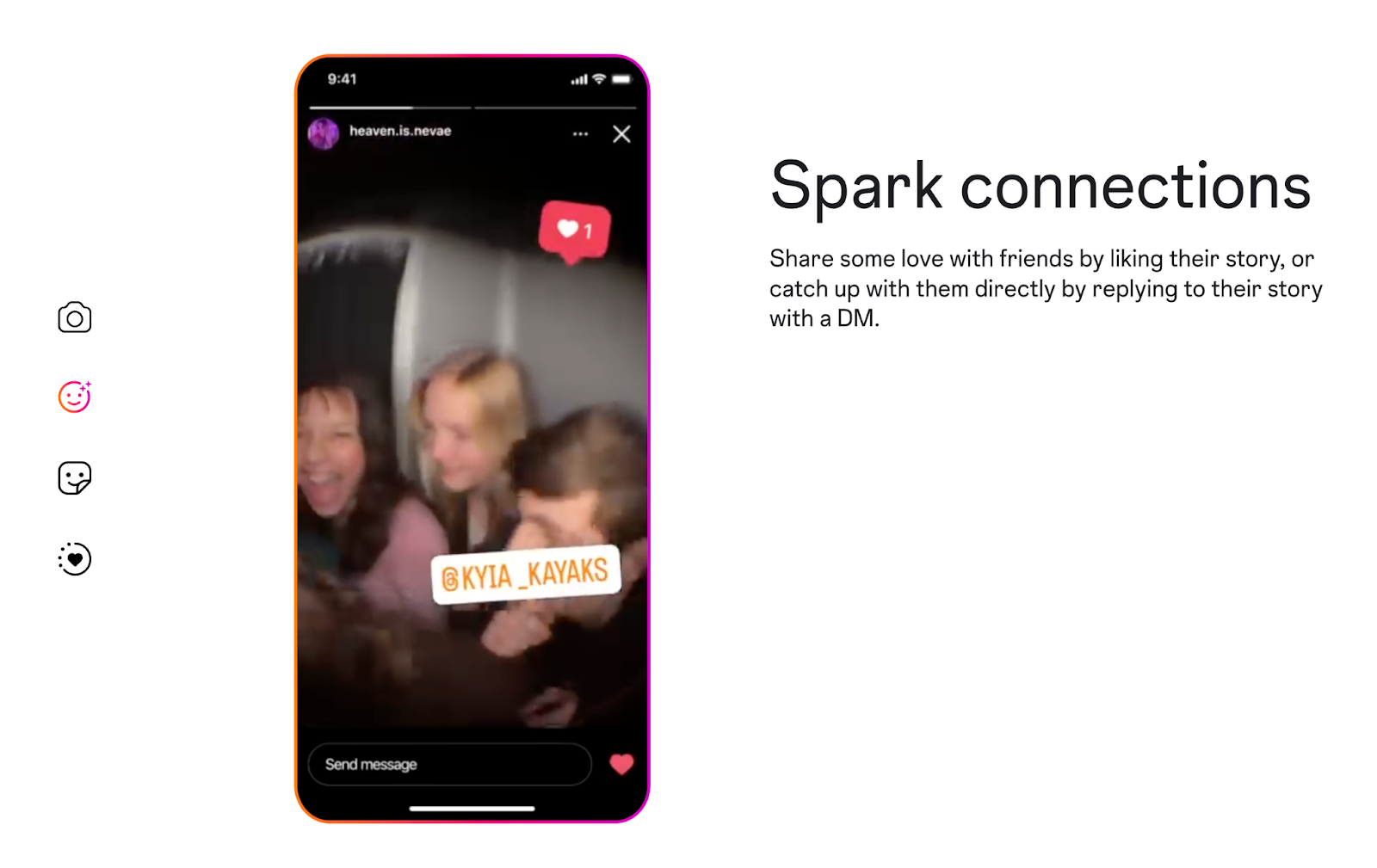
With strong interactive features like Stories, polls, and live videos, this platform allows businesses to engage with their audience in real time, leading to stronger relationships, higher loyalty, and more sales.
If you’re going to sell on Instagram, here are some pointers:
- Use high-quality visuals: Invest in professional photography and videography to showcase what you have to offer in the best light.
- Leverage Instagram Stories and Reels: They're powerful formats to be intimate with fans and go viral.
- Optimize your Instagram Shop: Ensure your Instagram Shop is easy to navigate, well-organized, and has clear product categories with concise descriptions.
3. TikTok
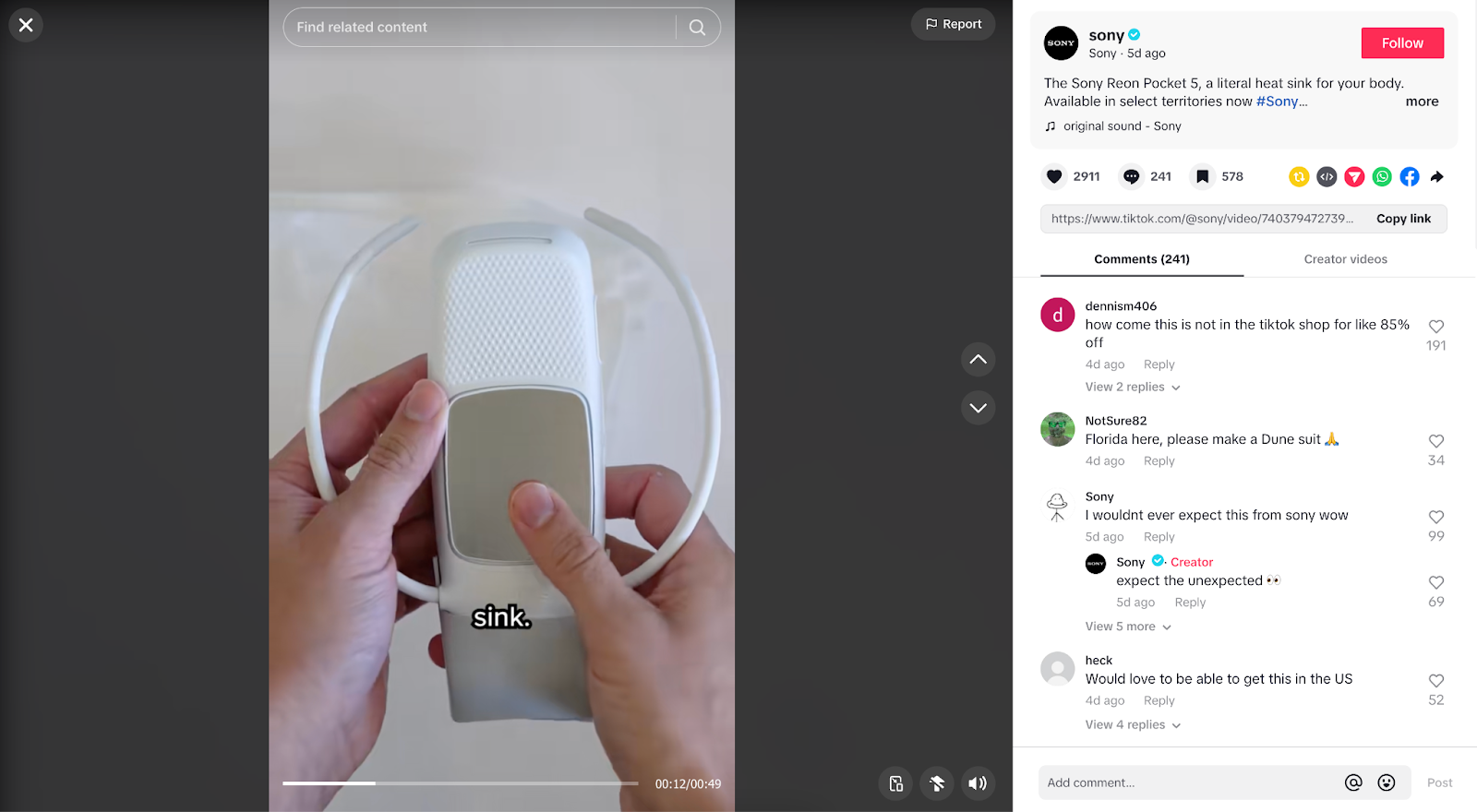
TikTok has really taken the social media world by storm, particularly among younger audiences. With over one billion active users in 2024, it’s a platform where creativity and virality reign supreme.
With strong viral potential, TikTok’s algorithm is designed to promote viral content, which means that it’s possible to reach a large audience with considerably little effort compared to other more laborious and costly forms of advertising. Choosing the right niche and making targeted ads that resonate with that audience can yield very positive results.
TikTok Shop is another great utility of this platform, allowing sellers, creators, and affiliates to sell directly through TikTok using live shopping, product showcases, shoppable videos, and the shop tab.
Want to sell on TikTok? Here are some useful tips:
- Embrace trends: Stay on top of TikTok trends and challenges. You can always find creative ways to incorporate your products into what’s popular.
- Use hashtags: A good hashtag can greatly increase the discoverability of your brand.
- Collaborate with TikTok creators: Influencer marketing can be very useful for your business, not only on TikTok but also on any other social media platform where you want to sell.
4. LinkedIn
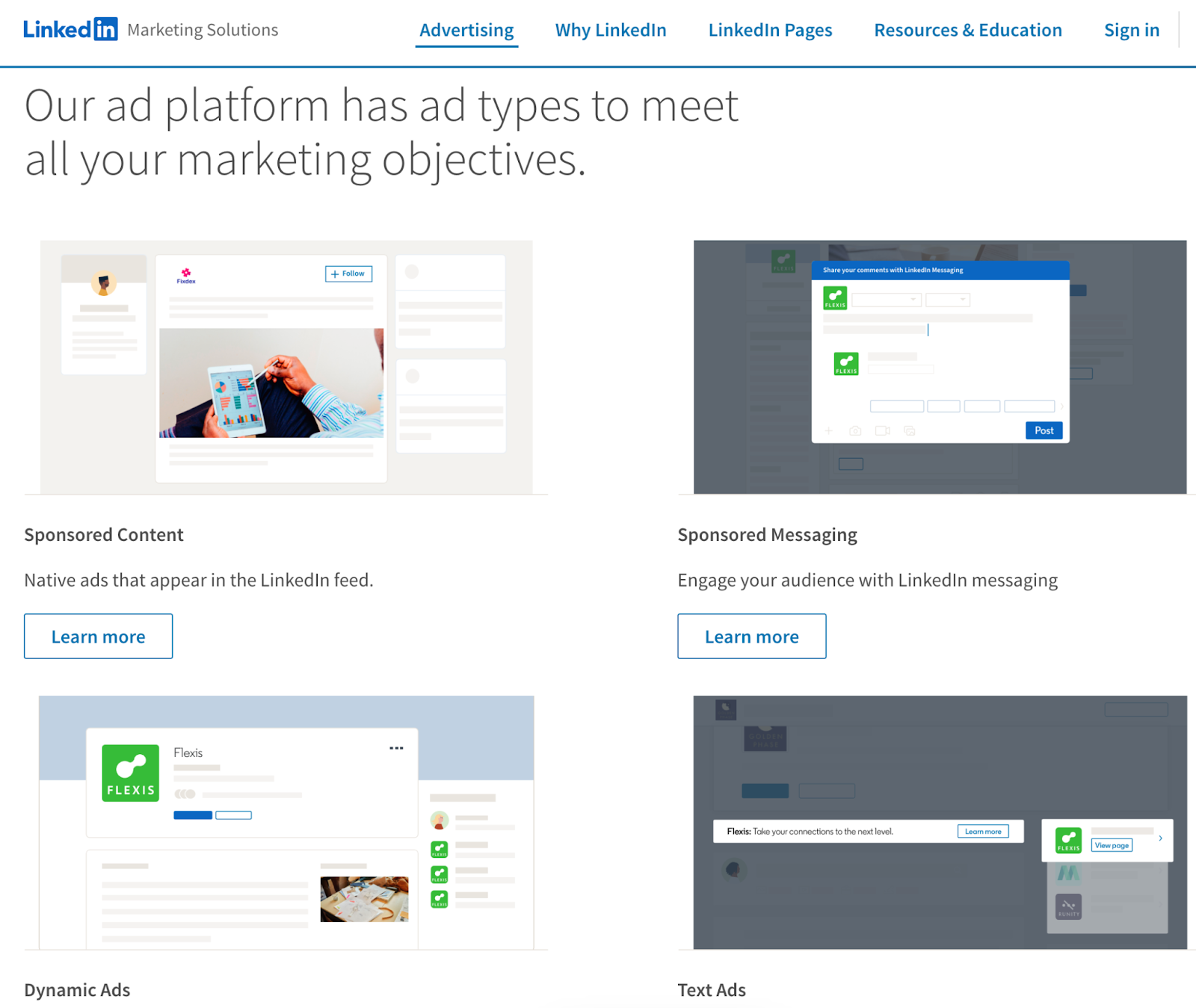
LinkedIn is often overlooked as a platform for selling products, but it can be highly effective for B2B (business-to-business) sales. With over one billion professionals on the platform, LinkedIn is ideal for businesses focused on selling products or services to other companies, such as agency services, online courses, curriculum, and software.
Unlike others, LinkedIn is a platform that offers a more niche audience. Its user base consists primarily of professionals and people seeking job opportunities or professional improvement, making it the perfect platform for B2B marketing and selling online courses.
LinkedIn is an excellent platform for generating leads. It may require a more “refined” form of content creation, but LinkedIn Ads offers precise targeting options, allowing you to reach decision-makers in specific industries, companies, and roles.
If you’re thinking about selling products on LinkedIn, here are some things to be aware of:
- Share educational content: Post regularly about industry trends and news related to your products and services.
- Use LinkedIn Ads: LinkedIn has some advanced targeting options that you can use to reach the right audience with your ads. Sponsored content and InMail are particularly effective for B2B marketing.
- Optimize your company page: Make sure your company page is complete, with a clear description of your products, services, and contact information.
5. Pinterest
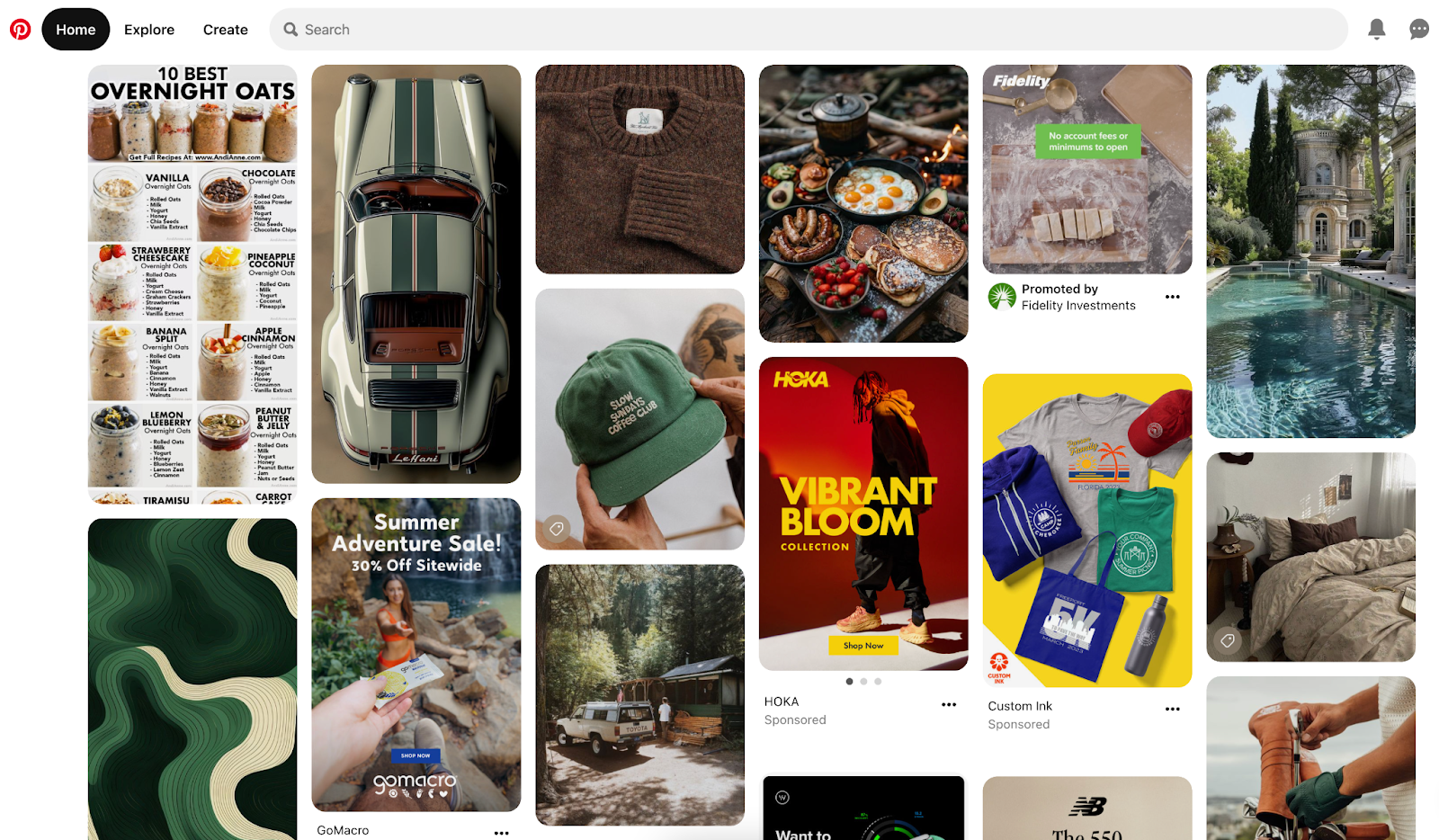
Ok, Pinterest may not be the first thing that comes to mind when thinking about a social media platform to sell on—especially compared to giants like Instagram and TikTok—but it has a solid, specific user base that presents a huge opportunity for creators and businesses to make money.
Pinterest users often browse the platform with a specific goal in mind, whether it’s planning a wedding, redecorating their homes, or finding a new recipe. These are very good niches in any marketplace, and there’s certainly no shortage of buyers on Pinterest for products of this type.
Also, Pinterest is very SEO-friendly, meaning that pins are searchable and can drive traffic to your own website long before they’ve been posted. Optimizing your pins with relevant keywords can really elevate your sales. The "showcase" nature of Pinterest makes it an even more commercial platform than the others mentioned above. Users who browse Pinterest are generally there to look for something to buy, not just to doomscroll.
And if you want to sell on Pinterest, here are some good tips:
- Create high-quality pins: Use professional images and compelling descriptions when creating pins, making them stand out. Also, vertical pins tend to perform best on Pinterest.
- Use rich pins: These types of pins provide additional information from your website about your products, such as pricing and availability, making it easier for users to make a purchase decision.
- Invest in Pinterest Ads: Using promoted pins will increase the visibility of your products.
Choosing the Right Social Media Platform for Your Business
As we said before, selecting the best social media to sell products depends on several factors like your target audience, the type of products or services you sell, and your overall marketing strategy.
Here’s a small summary of what each social media platform featured here has to offer to your business.
- Facebook offers the largest reach and advanced targeting capabilities, making it a versatile platform for businesses of all sizes.
- Instagram is ideal for visually appealing products and brands with its Stories and Reels being excellent tools for great content.
- TikTok is perfect for brands targeting younger audiences with creative and viral content and a strong use of influencer marketing.
- LinkedIn is the go-to platform for B2B sales, offering a professional audience and powerful networking opportunities.
- Pinterest is a great choice for brands in the home decor, fashion, and DIY niches, with users who have high purchase intent.
Understanding the strengths of each platform and aligning them with your business goals is imperative to maximize your social media sales and achieve long-term success. You can certainly sell on multiple platforms; you just need to adjust your strategy when necessary.
Sell Your Products with Whop
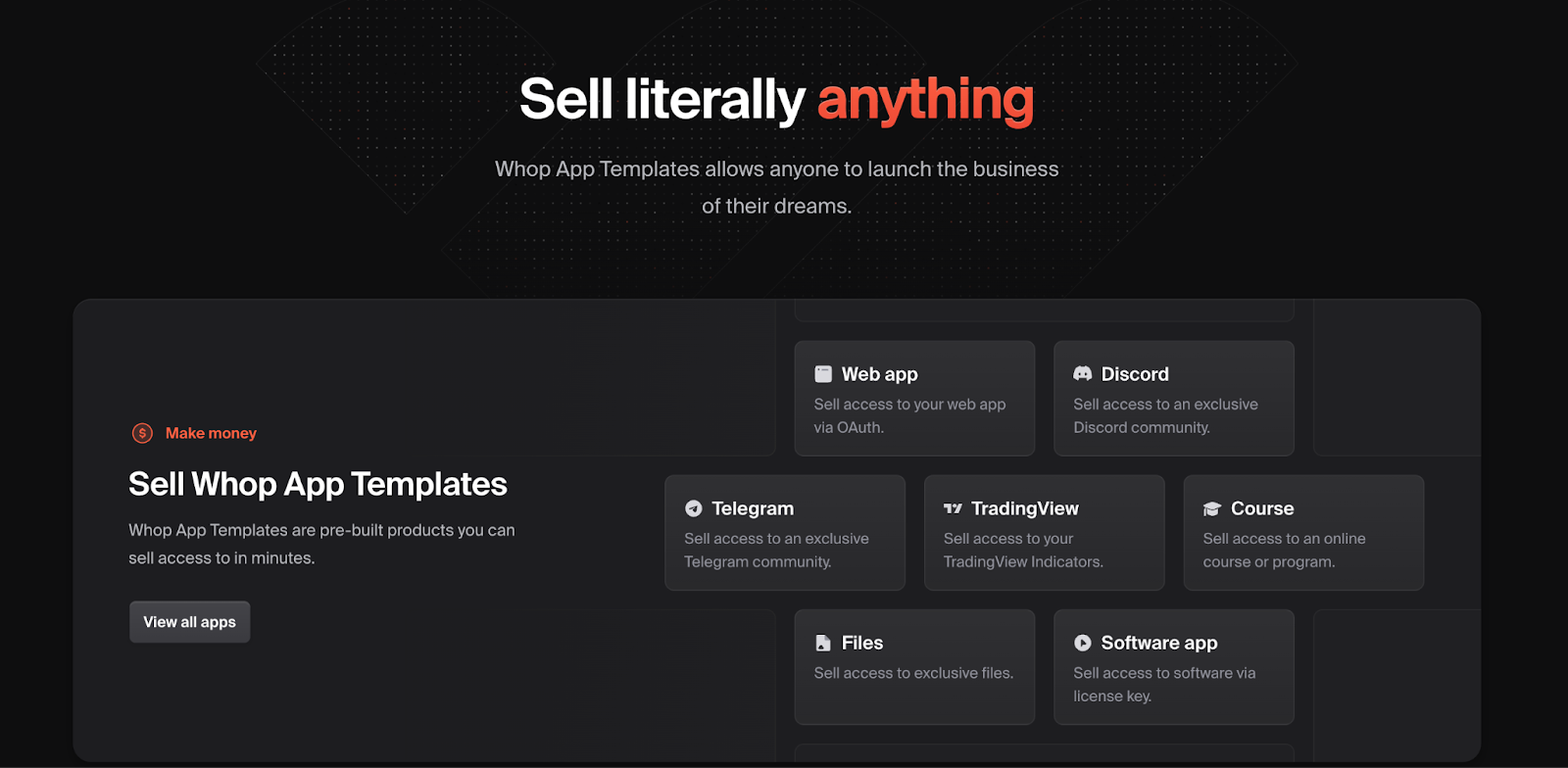
Whop is the ultimate tool for entrepreneurs, streamlining everything from community monetization, affiliate programs, and membership management to digital product fulfillment, customer service, and more—all within a single, user-friendly dashboard. Whatever you're selling, Whop can help you to create a thriving, loyal community of buyers. Plus, if you're selling digital products and services, you can do that right here on Whop.
With Whop, entrepreneurs have processed almost half a billion in sales.
Setting up your Whop store takes less than 10 minutes. Sign up today to jumpstart your entrepreneurial success.
Selling on Social Media Platforms FAQs
Is selling on social media a good business practice?
Yes, selling on social media can be an excellent business opportunity. It offers a range of benefits like access to a vast audience, cost-effective marketing, and flexibility to sell different products to different audiences.
What is the right social media platform to sell my products?
It will depend on the type of product you want to sell and your target audience. Despite the similarities, some social media platforms are better suited for specific types of businesses. Instagram and TikTok are great for physical products and LinkedIn would work best for professional services and educational products like courses. Snapchat is good for digital products.
Read our guide on the best social media courses and communities.
Why You Should Trust Us
Joe Niehaus is an experienced writer and ecommerce specialist at Whop. With a solid background in ecommerce, Joe also brings his expertise to renowned platforms like Business Insider, GQ, and Travel + Leisure.


